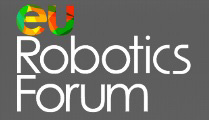European Robotic Forum 2015 - Workshop
AERIAL MANIPULATION
Co-Organized by the Aerial Robotics Topic Group of euRobotics.
Date: 11 March 2015, 08.00-10.00 AM.
Location: Aula der Wissenschaft - Hall of Science Wollzeile 27A, 1010 Vienna, Austria, Room 3.
Introduction: In the recent years the research community is devoting a growing interest towards the field of aerial robotics. Main applications are inspections, monitoring, sampling or survey of areas or buildings. Recently, interaction with the environment also has been object of attention for inspection and construction. A number of international and European projects have been dedicated (e.g.: AIRobots, AWARE) and are trying (ARCAS, SHERPA, EuRoC) to endow Unmanned Aerial Vehicles (UAVs) with the capacity to perform complex tasks among which also floating manipulation tasks by the use of robotic arms. The possibility to reach inaccessible or dangerous sites of UAVs in conjunction with the dexterity of articulated robotic arms for the execution of complex manipulation tasks represents nowadays the new frontier of service robotics. However, several problems remain opened and require further scientific and technological effort to allow the penetration of these solutions in a real industrial context. This workshop aims at presenting the current state of the art in the field of aerial manipulation, the industrial needs, the outstanding problems, and the future scenarios of this technology. To the purpose, the coordinators of 3 relevant European projects and one representative of the industry has been invited and already accepted to give a talk and participate to the discussion.
Agenda
- 08.00 - Introduction.
- 08.05 - Presentations:
- 8.05 - Aerial robots with general manipulation capabilities, A. Ollero.
- 8.25 - AEROWORKS: Collaborative Aerial Robotic Workers, G. Nikolakopoulos and K. Alexis.
- 8.45 - RobustControl of an Aerial Manipulator Interacting with the Environment, L. Marconi.
- 9.05 - Aerial robotic manipulation for inspection and maintenance – the industrial relevance, E. Zwicker.
- 09.25 - Round Table Discussion.
- 09.50 - Conclusions for the Roadmapping Process under Horizon 2020.
- 10.00 - End of the workshop.
Abstracts
Aerial robots with general manipulation capabilities (A. Ollero)
This presentation will analyse the requirements of the aerial robots with general manipulation capabilities. Then, it will present aerial robots with 6 and 7 joint arms developed in the ARCAS FP7 project and their control systems. The presentation will also include perception and planning systems also developed in the ARCAS project for aerial robotics cooperative manipulation. Finally, the new AEROARMs project devoted to aerial robotic manipulation with multiple arms will be introduced.
AEROWORKS: Collaborative Aerial Robotic Workers (G. Nikolakopoulos and K. Alexis)
AEROWORKS aims to introduce and develop the concept of "Collaborative Aerial Robotic Workers", a new intelligent team of service robots capable of assisting and autonomously handling infrastructure inspection and maintenance operations. The project aims to investigate the emerging scientific challenges of dexterous aerial co-manipulation and work-task execution, self- and co-localization and dense reconstruction, autonomous collision-free navigation, path-planning for structural inspection and intelligent collaboration of a team of aerial robotic workers for inspection and maintenance via-manipulation tasks. Through a strong collaboration of academic partners, robotic technologies manufactures, service providers and asset owners, the AEROWORKS team plans to increase the technology readiness levels, demonstrate the capabilities of the AEROWORKS robotic team and facilitate aerial robotics as a truly integrated component of infrastructure services.
Robust Control of an Aerial Manipulator Interacting with the Environmen (L. Marconi)
The talk deals with the problem of modelling and controlling an innovative aerial manipulator, i.e. a vertical take-off and landing aircraft equipped with a lightweight robotic arm. The system is able to perform complex operations that require the physical interaction with the surrounding environment while remaining airborne. The proposed controller takes explicitly into account the interaction between the robotic arm and the under-actuated aerial platform both during free-flight and in the presence of unknown contact forces deriving from the physical interaction with the environment. In particular, the position of the aerial platform is governed by properly shaping the resultant force vector which is given by the superposition of the thrust force generated by the onboard actuators, the gravity force and the reaction forces deriving from the motion of the robotic arm. The effectiveness and main properties of the proposed control algorithm have been rigorously investigated analytically and then demonstrated with the help of an experiment in which the end-effector is requested to interact physically with a rigid surface.
Aerial robotic manipulation for inspection and maintenance – the industrial relevance (E. Zwicker)
It is of great importance that the availability of large-scale facilities such as power plants, refineries, chemical resp. petrochemical installations, or facilities for accessing, extracting and transporting oil and gas should be as seamless as possible. The operators of these facilities do their utmost to prevent unscheduled downtimes, as these cause losses amounting to millions – every day. Hence to permanent monitoring of the condition of the assets is of vital interest. Flying visual inspection is getting more and more common practice. However, for a detailed nondestructive assessment for cracks, corrosion and other kind of mechanical flaws advanced manipulation capabilities are needed to install and maintain permanent sensors or to place mobile crawlers on remote structures. Focus of this presentation is to present and to discuss industrial use cases and to discuss their relevance and impact flying inspection.
Speakers
Anibal Ollero, University of Seville & Scientific Advisor of the Center for Advanced Aerospace Technologies, Spain
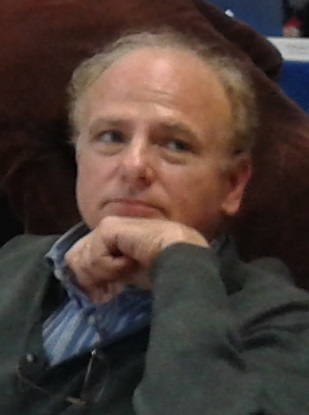 He is full professor, head of GRVC (75 members) at the University of Seville, and Scientific Advisor of the Center for Advanced Aerospace Technologies (70 members) in Seville (Spain). He has been full professor at the Universities of Santiago and Malaga (Spain), researcher at the Robotics Institute of Carnegie Mellon University (Pittsburgh, USA) and LAAS-CNRS (Toulouse, France). He authored about 560 publications, including 9 books and 140 journal papers and led about 140 projects, transferring results to many companies. He is recipient of 14 research awards and, up to now, has been advisor of 29 PhD Thesis. He is currently the coordinator of the FP7-EC projects ARCAS and EC-SAFEMOBIL.
He is full professor, head of GRVC (75 members) at the University of Seville, and Scientific Advisor of the Center for Advanced Aerospace Technologies (70 members) in Seville (Spain). He has been full professor at the Universities of Santiago and Malaga (Spain), researcher at the Robotics Institute of Carnegie Mellon University (Pittsburgh, USA) and LAAS-CNRS (Toulouse, France). He authored about 560 publications, including 9 books and 140 journal papers and led about 140 projects, transferring results to many companies. He is recipient of 14 research awards and, up to now, has been advisor of 29 PhD Thesis. He is currently the coordinator of the FP7-EC projects ARCAS and EC-SAFEMOBIL.
Kostas Alexis, ETH Zurich, Swiss
Kostas Alexis (born in 1984) is a Senior Researcher at the Autonomous
Systems Lab of ETH Zurich working in the direction of flight control and
autonomous planning for aerial robots. Kostas obtained his PhD in the field
of aerial robotics, control and collaboration from the University of Patras,
Greece in 2011 and from the beginning of his research efforts he has been the
author of more than 40 scientific publications, has received several best-paper
awards in the field of control and has participated in multiple large-scale
research projects. He is passionate about robotic research and applications
and has the vision of facilitating aerial robots as an integral part of a new
kind of automation that operates within the dynamic physical world.
Lorenzo Marconi, Univerity of Bologna, Italy
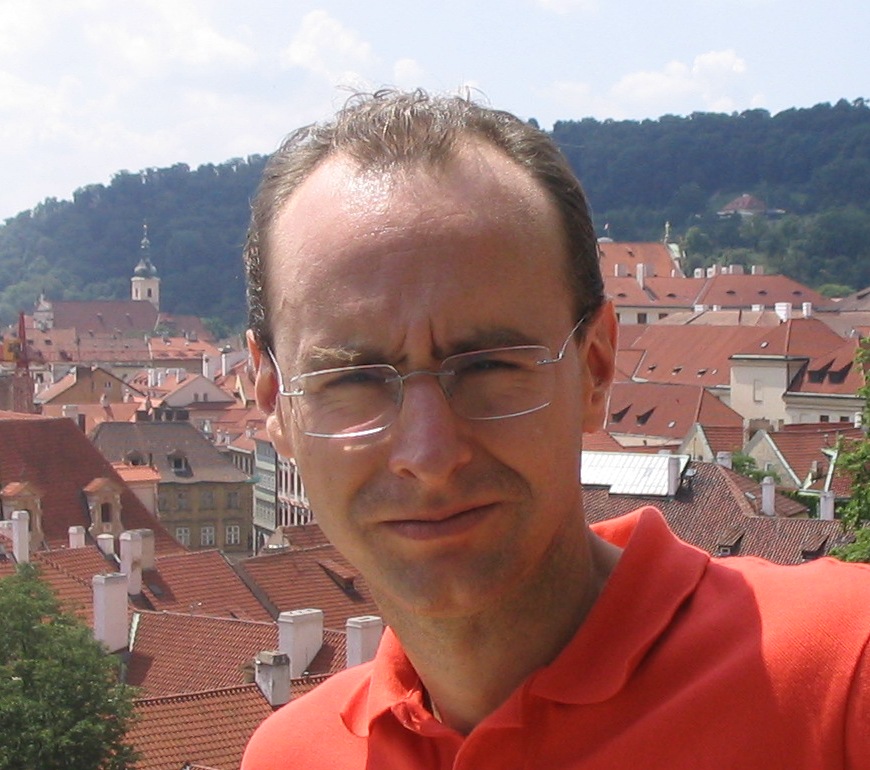 Lorenzo Marconi graduated in 1995 in Electrical Engineering from the University of Bologna. Since 1995 he has been with the Department of Electronics, Computer Science and Systems at University of Bologna, where he obtained his Ph.D. degree in March 1998. From 1999 he has been an Assistant Professor in the same Department where is now Associate Professor since January 2005. He has held visiting positions at various academic/research international institutions. He is co-author of more than 200 technical publications on the subject of linear and nonlinear feedback design published on international journals, books and conference proceedings. In 2005, he received the "Outstanding Application Paper Award" from the International Federation of Automatic Control (IFAC) for a co-authored paper published on Automatica. He is also the recipient of the 2014 IEEE Control Systems Magazine Outstanding Paper Award for the best paper published on the magazine in the period 2012-2013. He is member of the IEEE Control System Society, of the Control System Society Conference Editorial Board, and of the IFAC Technical Committee on "Safety and Supervision in Technical Processes". He is the chair of the IFAC Technical Committee on "Nonlinear Control Systems". His current research interests include nonlinear control, output regulation, control of autonomous vehicles, fault detection and isolation, fault tolerant control.
Lorenzo Marconi graduated in 1995 in Electrical Engineering from the University of Bologna. Since 1995 he has been with the Department of Electronics, Computer Science and Systems at University of Bologna, where he obtained his Ph.D. degree in March 1998. From 1999 he has been an Assistant Professor in the same Department where is now Associate Professor since January 2005. He has held visiting positions at various academic/research international institutions. He is co-author of more than 200 technical publications on the subject of linear and nonlinear feedback design published on international journals, books and conference proceedings. In 2005, he received the "Outstanding Application Paper Award" from the International Federation of Automatic Control (IFAC) for a co-authored paper published on Automatica. He is also the recipient of the 2014 IEEE Control Systems Magazine Outstanding Paper Award for the best paper published on the magazine in the period 2012-2013. He is member of the IEEE Control System Society, of the Control System Society Conference Editorial Board, and of the IFAC Technical Committee on "Safety and Supervision in Technical Processes". He is the chair of the IFAC Technical Committee on "Nonlinear Control Systems". His current research interests include nonlinear control, output regulation, control of autonomous vehicles, fault detection and isolation, fault tolerant control.
Dr. Ing. Ekkehard Zwicker, CEO ALSTOM Inspection Robotics, Switzerland
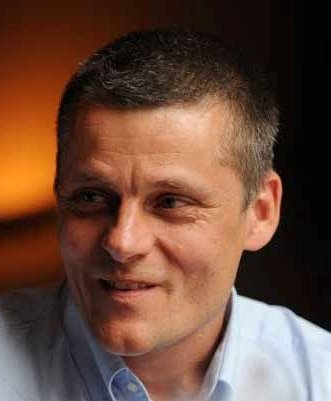 In 1994, Ekkehard Zwicker received an M.Sc. with honors in mechanical engineering from the Technical University of Karlsruhe, and in 1998 gained a Ph.D. with honors from the Swiss Federal Institute of Technology (ETH) in Zurich. From 1998, he continued as a senior researcher at the Centre for Product Development at the ETH. In parallel, he founded and built up an ETH spinoff company focusing on digital product design. In 2008, he joined Alstom Inspection Robotics, where he focuses on defining and executing the strategy of the company.
In 1994, Ekkehard Zwicker received an M.Sc. with honors in mechanical engineering from the Technical University of Karlsruhe, and in 1998 gained a Ph.D. with honors from the Swiss Federal Institute of Technology (ETH) in Zurich. From 1998, he continued as a senior researcher at the Centre for Product Development at the ETH. In parallel, he founded and built up an ETH spinoff company focusing on digital product design. In 2008, he joined Alstom Inspection Robotics, where he focuses on defining and executing the strategy of the company.
Organizers
Gianluca Antonelli, University of Cassino, Italy
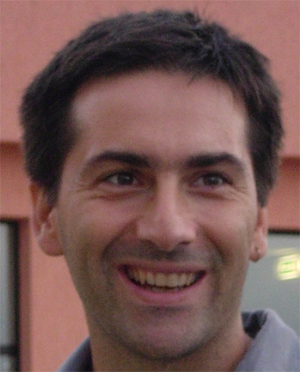 Gianluca Antonelli is an Associate Professor at the "University of Cassino and Southern Lazio". His research interests include marine and industrial robotics, multi-agent systems, identification. He has published 34 international journal papers and more than 90 conference papers, he is author of the book "Underwater Robots" (Springer-Verlag, 2003, 2006, 2014) and co-authored the chapter "Underwater Robotics" for the Springer Handbook of Robotics, (Springer-Verlag, 2008, 2015). He has been involved in various roles in research projects funded under FP7 and H2020 schemes: Co3AUVs, ECHORD, ARCAS, EUROC, AEROARMS, DexROV and WiMUST. He served both as independent expert and reviewer for the European FP calls several times since 2006. He is secretary of the IEEE-Italy section, he has been chair of the IEEE Robotics and Automation Society (RAS) Italian Chapter, he has been Chair of the IEEE RAS Technical Committee in Marine Robotics. He served in the Editorial Board of the IEEE Transactions on Robotics, IEEE Transactions on Control Systems Technology, Springer Journal of Intelligent Service Robotics, he is Editor for the RAS Conference Editorial Board.
Gianluca Antonelli is an Associate Professor at the "University of Cassino and Southern Lazio". His research interests include marine and industrial robotics, multi-agent systems, identification. He has published 34 international journal papers and more than 90 conference papers, he is author of the book "Underwater Robots" (Springer-Verlag, 2003, 2006, 2014) and co-authored the chapter "Underwater Robotics" for the Springer Handbook of Robotics, (Springer-Verlag, 2008, 2015). He has been involved in various roles in research projects funded under FP7 and H2020 schemes: Co3AUVs, ECHORD, ARCAS, EUROC, AEROARMS, DexROV and WiMUST. He served both as independent expert and reviewer for the European FP calls several times since 2006. He is secretary of the IEEE-Italy section, he has been chair of the IEEE Robotics and Automation Society (RAS) Italian Chapter, he has been Chair of the IEEE RAS Technical Committee in Marine Robotics. He served in the Editorial Board of the IEEE Transactions on Robotics, IEEE Transactions on Control Systems Technology, Springer Journal of Intelligent Service Robotics, he is Editor for the RAS Conference Editorial Board.
Vincenzo Lippiello, University of Naples, Italy
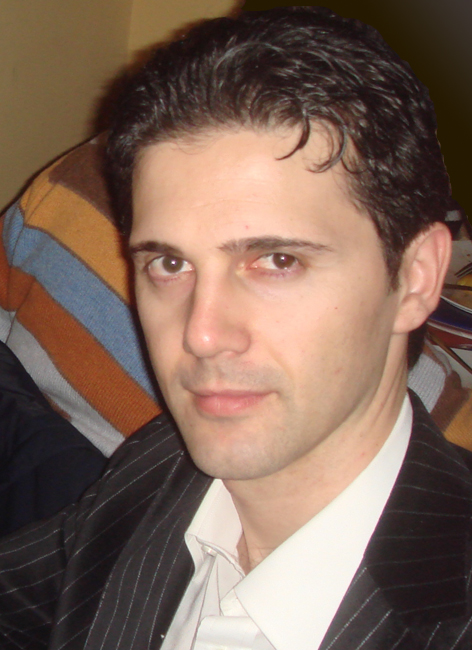 Vincenzo Lippiello was born in Naples, Italy, on June 19, 1975.
He received his Laurea degree in electronic engineering and the Research Doctorate degree in information engineering from the University of Naples, in 2000 and 2004, respectively.
He is an Assistant Professor of Automatic Control in the Department of Electrical Engineering and Information Technology, University of Naples.
His research interests include visual servoing of robot manipulators, hybrid visual/force control, adaptive control, grasping and manipulation, aerial robotics, robotic ball catching, and visual object tracking and reconstruction.
He has been involved in various roles in research projects funded under FP7 and H2020 schemes: PHRIENDS, DEXMART, AIRobots, ECHORD, SAPHARI, ARCAS, SHERPA (Principal Investigator), RoDyMan, EuRoC.
He has published more than 90 journal, conference papers and book chapters.
He is member of the IFAC Technical Committee on Robotics.
Vincenzo Lippiello was born in Naples, Italy, on June 19, 1975.
He received his Laurea degree in electronic engineering and the Research Doctorate degree in information engineering from the University of Naples, in 2000 and 2004, respectively.
He is an Assistant Professor of Automatic Control in the Department of Electrical Engineering and Information Technology, University of Naples.
His research interests include visual servoing of robot manipulators, hybrid visual/force control, adaptive control, grasping and manipulation, aerial robotics, robotic ball catching, and visual object tracking and reconstruction.
He has been involved in various roles in research projects funded under FP7 and H2020 schemes: PHRIENDS, DEXMART, AIRobots, ECHORD, SAPHARI, ARCAS, SHERPA (Principal Investigator), RoDyMan, EuRoC.
He has published more than 90 journal, conference papers and book chapters.
He is member of the IFAC Technical Committee on Robotics.
George Nikolakopoulos, Luleå University of Technology, Sweden
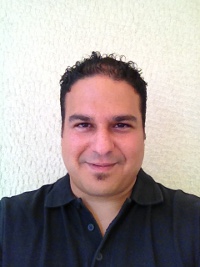 George Nikolakopoulos work as an Associate Professor (Biträdande Professor-Docent) at the Department of Computer Science, Electrical and Space Engineering at Luleå University of Technology, Luleå, Sweden.
His work is focusing in the area of Robotics, Control Applications and Cyberphysical Systems, while he has a significantly large experience in Creating and Managing European and National Research Projects. In the past he has been working as project manager and principal investigator in Several R&D&I projects funded by the EU, ESA, Swedish and the Greek National Ministry of Research, with some examples to be: a) EU funded projects: FLEXA (IP), C@R (IP), NANOMA (STREP), SYMBIOSIS-EU (STREP), CONFIDENCE (STREP), PROMOVEO (STREP), CommRob (STREP), b) ARTEMIS funded projects: R5-COP, and c) Swedish funded projects: Mine Patrolling Rovers, Pneumatic Muscle Dancer, etc.
In 2014 he has granted as coordinator the H2020-ICT AEROWORKS project in the field of Aerial Collaborative UAVs and the H2020-SPIRE project DISIRE in the field of Integrated Process Control of a total budget of 12M Euros. In 2013 he has received a grant of 220K Euros for establishing the bigger outdoors motion capture system in Sweden and most probably in Europe as part of the FROST Field Robotics Lab at Luleå University of Technology. In 2014, George has nominated as LTU's Wallenberg candidate, one out of three nominations from the University and 16 in total engineering nominations in Sweden. In year 2003, he have received the Information Societies Technologies (IST) Prize Award for the best paper that Promotes the scopes of the European IST (currently known as ICT) sector.
His publications in the field of UAVs have received top recognition from the related scientific community, while have been several times listed in the TOP 25 most popular publications in Control Engineering Practice from Elsevier. In 2014 he has received the 2014 Premium Award for Best Paper in IET Control Theory and Applications, Elsevier for our research work in the area of UAVs, This is a Premium Award to recognise the best research papers published during the last two years in this Journal. His published scientific work includes more than 150 published International Journals and Conferences in the fields of my interest. Moreover He has served as IPC member and Technical Track Chair for multiple international conferences and have been Associate Editor and Reviewer of Several International Journals and Conferences.
George Nikolakopoulos work as an Associate Professor (Biträdande Professor-Docent) at the Department of Computer Science, Electrical and Space Engineering at Luleå University of Technology, Luleå, Sweden.
His work is focusing in the area of Robotics, Control Applications and Cyberphysical Systems, while he has a significantly large experience in Creating and Managing European and National Research Projects. In the past he has been working as project manager and principal investigator in Several R&D&I projects funded by the EU, ESA, Swedish and the Greek National Ministry of Research, with some examples to be: a) EU funded projects: FLEXA (IP), C@R (IP), NANOMA (STREP), SYMBIOSIS-EU (STREP), CONFIDENCE (STREP), PROMOVEO (STREP), CommRob (STREP), b) ARTEMIS funded projects: R5-COP, and c) Swedish funded projects: Mine Patrolling Rovers, Pneumatic Muscle Dancer, etc.
In 2014 he has granted as coordinator the H2020-ICT AEROWORKS project in the field of Aerial Collaborative UAVs and the H2020-SPIRE project DISIRE in the field of Integrated Process Control of a total budget of 12M Euros. In 2013 he has received a grant of 220K Euros for establishing the bigger outdoors motion capture system in Sweden and most probably in Europe as part of the FROST Field Robotics Lab at Luleå University of Technology. In 2014, George has nominated as LTU's Wallenberg candidate, one out of three nominations from the University and 16 in total engineering nominations in Sweden. In year 2003, he have received the Information Societies Technologies (IST) Prize Award for the best paper that Promotes the scopes of the European IST (currently known as ICT) sector.
His publications in the field of UAVs have received top recognition from the related scientific community, while have been several times listed in the TOP 25 most popular publications in Control Engineering Practice from Elsevier. In 2014 he has received the 2014 Premium Award for Best Paper in IET Control Theory and Applications, Elsevier for our research work in the area of UAVs, This is a Premium Award to recognise the best research papers published during the last two years in this Journal. His published scientific work includes more than 150 published International Journals and Conferences in the fields of my interest. Moreover He has served as IPC member and Technical Track Chair for multiple international conferences and have been Associate Editor and Reviewer of Several International Journals and Conferences.
Contact us
Gianluca Antonelli
Associate Professor
Universita` di Cassino e Lazio Meridionale
Via Di Biasio 43, 03043, Cassino, Italy
e-mail: antonelli@unicas.it, web
Vincenzo Lippiello
Assistant Professor
Universita` di Napoli Federico II
Via Claudio 21, 80125, Naples, Italy
e-mail: lippiello@unina.it, web
George Nikolakopoulos
Professor
Luleå University of Technology
97187, Luleå, Sveden
e-mail: george.nikolakopoulos@ltu.se, web
